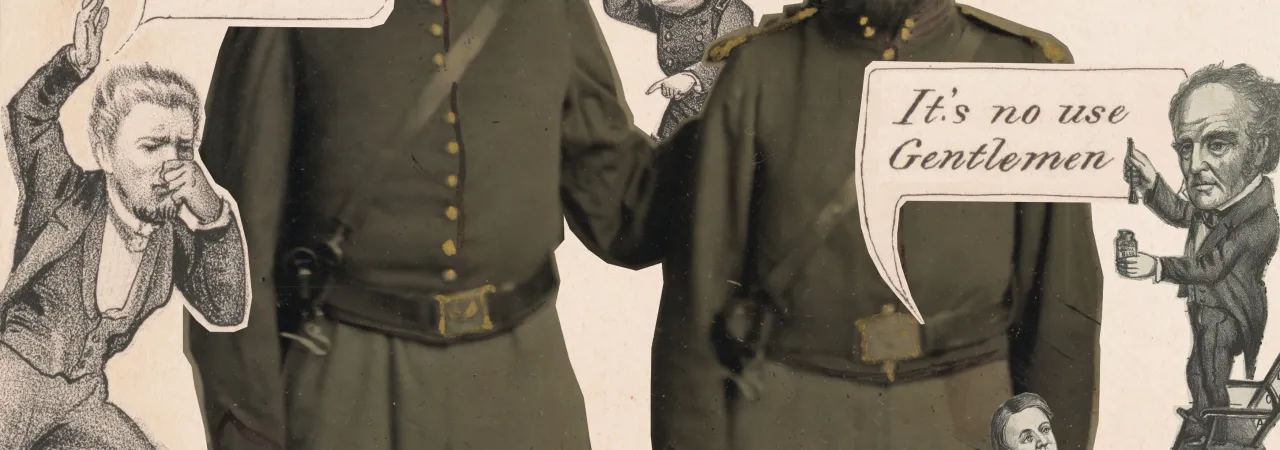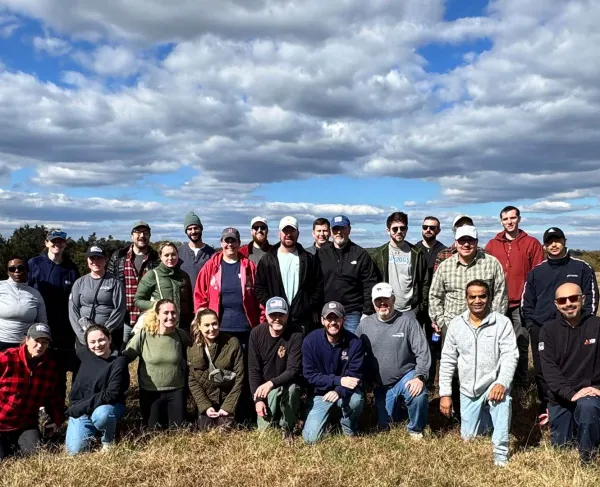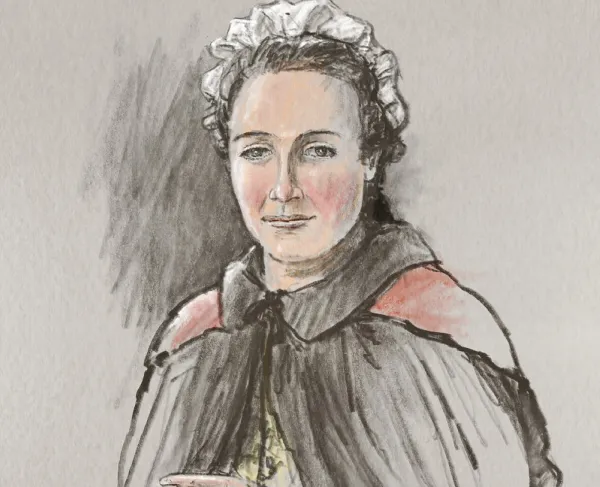
Some things have changed a lot since the time of the American Civil War – and some haven’t changed at all.
Take the art of the clapback, for instance. Merriam-Webster defines a “clapback” as “...responding to a criticism with a withering comeback.” While the term is in its infancy by historical standards, originating in early-‘90s rap music, the practice of answering insult with humor or derision is older than the minie ball. And the practice of throwing shade with a witty one-liner is as old as time itself.
But don’t take our word for it. Here are 5 Civil War exchanges that illustrate our nation’s proud history of fearless, searing comebacks and witticisms.
Confederate General George “Maryland”Steuartto Union General Winfield Scott Hancock
At the Battle of Spotsylvania Court House during the Overland Campaign, Maj. Gen. Winfield Scott Hancock offered Brig. Gen. George “Maryland” Steuart his hand after capturing Steuart’s brigade. Steuart, despite knowing Hancock before the war, refused the gesture, saying, “Under existing circumstances, Sir, I cannot take your hand.” Hancock replied, “And under any other circumstances, I should not have offered it.”Maj. Gen. Edward “Allegheny” Johnson, Steuart’s commander and an another old acquaintance, less famously opted to accept Hancock’s handshake and was rewarded with breakfast.
Union General William S. Rosecrans to General-in-Chief Henry Halleck
As the end of 1862 approached, Union Maj. Gen. William S. Rosecrans,in command of the Army of the Cumberland, faced increasing pressure from his superiors to move against Confederate Gen. Benjamin Bragg. Rosecrans insisted that his army remain at headquarters in Nashville until they could reorganize and resupply. In early December, he received a terse warning from General-in-Chief Henry Halleck: “As I wrote to you when you took the command, the Government demands action, and if you cannot respond to that demand, some one (sic) else will be tried.”
“If the Government which ordered me here confides in my judgment, it may rely on my continuing to do what I have been trying to – that is, my whole duty....I have but one word to add, which is, that I need no other stimulus to make me do my duty than the knowledge of what it is.”
Halleck allowed Rosencrans to do his duty and was rewarded with a hard-fought victory as the new year dawned. The Battle of Stones River gave the Union a much-needed morale boost and placed control of Middle Tennessee in Federal hands for the rest of the war.
An unknown Federal picket to Union Secretary of War Edwin Stanton
There was plenty of hierarchy built into the military during the Civil War – but deference to rank was far from universal. Take this exchange from 'Abe' Lincoln's Anecdotes and Stories for an illustration. This doesn’t constitute a textbook “clapback,” but the witty repartee has a similar sentiment:
When Secretary Stanton was making a trip up the Broad River in North Carolina, in a tugboat, a Federal picket yelled out, "What have you got on board of that tug?"
The severe and dignified answer was, "The Secretary of War and Major-General Foster."
Instantly the picket roared back, "We've got major-generals enough up here. Why don't you bring us up some hardtack?"
Confederate Colonel Andrew Jackson Grigsby to Jefferson Davis
During a heated encounter with a regimental commander who’d been passed over for promotion to lead the famed Stonewall Brigade, an enraged Confederate President Jefferson Davis leapt from his chair to shout “Do you know who I am? I am the president of the Confederacy!”
We can probably safely assume that the response wasn’t what Davis expected: “And do you know who I am, sir? I am Andrew Jackson Grigsby of Rockbridge County, Virginia, late colonel of the Bloody 27th Virginia of the Stonewall Brigade, and as good a man as you or anyone else, by God!”
Grigsby’s fiery retort didn’t result in the promotion he’d been appealing for and he resigned from the Army of Northern Virginia soon after.
Union Commander Ulysses S. Grant to one of his officers
According to Horace Porter’s Campaigning with Grant, at the Battle of the Wilderness in 1864, a general officer came in from his command to address general-in-chief Grant with the following: "General Grant, this is a crisis that cannot be looked upon too seriously. I know Lee's methods well by past experience; he will throw his whole army between us and the Rapidan, and cut us off completely from our communications."
Grant “rose to his feet, took his cigar out of his mouth, turned to the officer, and replied... ‘Oh, I am heartily tired of hearing about what Lee is going to do. Some of you always seem to think he is suddenly going to turn a double somersault, and land in our rear and on both of our flanks at the same time. Go back to your command, and try to think what we are going to do ourselves, instead of what Lee is going to do.’”
Grant’s refusal to adopt the reactive mindset that plagued many of his predecessors paid off: he would accept the surrender of Lee’s army at Appomattox Court House less than a year later.
It seems the need to speak one’s truth and boldly confront perceived offenses is as fundamental to human nature as sleep and sunshine. The slang may change, but humor and honor find expression generation after generation.
These clapbacks offer a vivid glimpse of real experiences in the Civil War, but there’s so much more to the story. For a 360-degree window into Civil War combat, watch the Trust’s virtual reality series, “Civil War 1864.” For a big-picture understanding of what life was like for Civil War soldiers, explore our collection “Soldier Life: From Camp to the Battlefield.”





